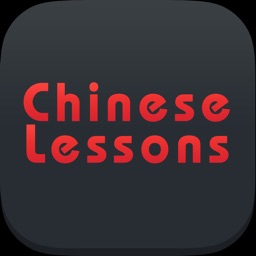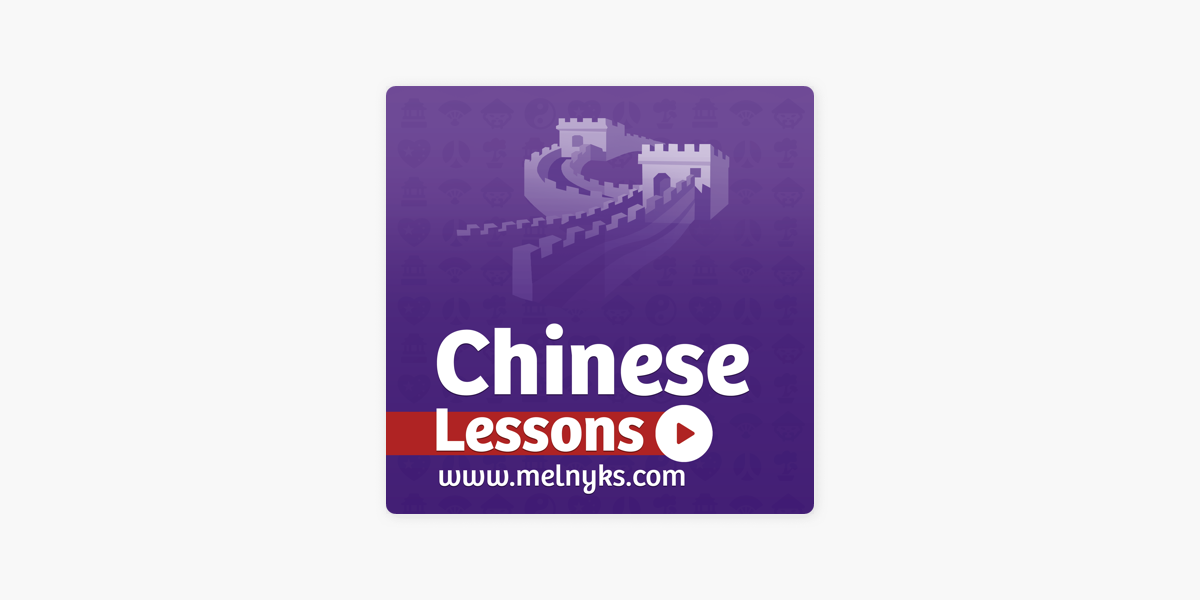- Introduction
- The pros and cons
- What to pay attention to when choosing an online tutor or class
- Chinese learning resources for kids
- Conclusion
- Common online class expressions (PDF download)
Introduction
Why has tutoring shifted to online in recent years?
During the past three years, due to the effects of Covid, lots of language learners have switched from offline to online schooling. Yet, along with the easing of various restrictions in most areas, some learners have gone back to offline learning again, but most of them have decided to remain online. The same is true for Chinese language learning.
It’s easy to understand why an adult learner would choose online learning now. It’s more convenient and flexible. Learners can have their Chinese class out of town, even in other countries. It’s up to the learners to decide when to hold the class, such as during their lunch or early coffee break. And, especially for Chinese, there are few choices for parents and children to learn offline in their own town. If they want professional Chinese tutoring, they would prefer a native professional tutor. Online tutors come into their sights.
What are parent’s concerns with online tutoring?
But many parents are still worried if online tutoring is effective or sufficient for their children.
Children have their own needs and learning paces. Especially for younger kids, it’s a little hard to keep them facing a screen for a long time. After half an hour, they easily lose focus. And many parents don’t want their kids to have so much screen time in a day. No wonder why so many parents have concerns about online tutoring.
Actually, it depends on which subject they are taking. If it’s sports or playground activities, it’s really hard to keep it online. But if we are talking about language learning, then online tutoring is quite a viable choice.
The pros and cons
The benefits of learning Chinese with an online tutor
- Online class schedules are often much more flexible than offline. You can decide when to take the class and adjust the schedule as you need.
- No matter where the students are, the class can still be held. Parents don’t need to bring their children to the classroom. It’s quite time-saving. Without the added time of dropping and picking up kids from a physical classroom, parents’ have more time on their hands.
- It’s more convenient and easier to find a native professional Chinese teacher online who suits your children’s needs.
- Online Chinese classes are affordable. It’s often much cheaper than offline classes.
- Audio and video content online can be very enjoyable.
- It’s okay to record online classes. Children can review the class again or practice any time after class at home.
- If parents want, they are free to observe and be around when children take online classes in case they get distracted. Parents can also monitor the lesson quality..
- With private online tutors, the study plan can be very personalized. They can even help with school homework or other special Chinese language requirements.
Potential issues of learning Chinese with an online tutor
- During school years, children need more interaction with peers. Classroom time can provide them with a neutral environment for social interaction and real communication. If the class goes online, then real-life interactions get harder.
- Online language classes need a quiet place and a stable internet connection. If you can’t assure these basic requirements, then your children cannot learn as easily.
- For younger kids, it’s easy to get bored or distracted if the online class is not very appealing to them. And sometimes the tutor can’t find out what they are thinking or doing immediately.
- Too much screen time is not ideal or healthy for children.
- Children have an easier time developing a relationship with offline tutors, which may help cultivate enthusiasm for learning. But online tutors it may take a long time and a lot of patience to get the same result.
What to pay attention to when choosing an online tutor or class
It truly depends on what your needs are and what circumstances you are in. For children, if you are able to keep learning in a classroom, that would be terrific. They need more interactions and lessons with language partners and tutors. In addition to social interaction skills such as cooperation, empathy, and leadership, if you focus more on the language learning itself, then here are some tips.
1. You need to verify the teacher’s credentials
What is the tutor’s teaching experience? How long have they been teaching Chinese? Have they taught children before? Is this tutor familiar with online teaching? Does this tutor have related Mandarin teaching degrees and certifications? Are they a native mandarin Chinese speaker?
Check out more detailed suggestions to help you find an excellent Chinese teacher: How to Find a Really Good Chinese Teacher to Guide Your Learning
2. Make sure your children are learning content that fits their language skills and level
If your children are beyond the current classroom level, then they might be very comfortable in the lessons, but the problem is that it’s hard to continue progressing and keep going. On the contrary, if your children are learning content beyond their own level, then it’s very easy to get tired of learning the language, and they may lack confidence. Private tutoring can help with this problem. No matter whether you want an online tutor or an offline tutor, the right teacher can make a very personalized study plan, which will help your children to progress at the right speed.
3. The tutor’s ratings and reviews are very important
Ratings and reviews from other students and organizations are very important for you to consider. The tutor’s reliability, patience, clarity, and accuracy are the factors you should pay the most attention to.
Some online schools have their top recommended tutors. You can ask for their professional advice and tell them your biggest needs. These schools often have various tutors who have different strong points which could help them adapt to each child’s special requirements.
If your friends have Chinese tutors for their children who have excellent feedback, then don’t hesitate to ask for their recommendation. Feel free to ask your friends about your concerns.
4. An independent freelance teacher VS A teacher who works for a school
Thanks to the internet, there are countless options for you all around the world when you want something, and it’s the same with Chinese tutors. There are mainly two kinds of teachers online.
One is working as a freelancer who often posts themself on language exchange websites, such as italki, preply, verbalplanet, etc. Teaching Chinese is often their part-time job or hobby. Most of them are Chinese native speakers. Some of them also have professional Chinese language teaching certifications, some don’t. They are often quite flexible, but you need to book the class every single time. If you are looking for a spoken Chinese partner, then this is a good choice. You can communicate a different native speaker in every single class. And some of them are with quite low cost. If you have limited access to Chinese immersion, this can help teach more about Chinese people.
The other is working for an online language school and is often a professional mandarin Chinese teacher with rich teaching experience. The schools often have free trial classes so that learners can find a good fit, but after that, you can’t only buy one class at a time. There are often different class packages, and you’ll need to ask for more details about the school’s class services. The advantages are obvious: parents don’t need to worry about the class plan, reliability, and consistency. It’s easy for parents to communicate with the teacher and administers and keep track of their children’s progress.
Learning Mandarin Online: Teacher Vs. School
5. Online live class VS Recorded video class
When choosing online tutoring, you may find that there are not only one-on-one live Chinese tutors, but also systematically recorded video classes. Generally speaking, recorded video classes can be a supplement for children. It’s okay for reviewing or practicing content after class. Live class tutors are more suitable for children since the real tutor can draw their attention instantly and have more interactions during the class. The tutor can adjust the lesson content and teaching style along with the children’s feedback. If there are any questions or problems that come up, the tutor can explain immediately.
Chinese learning resources for kids
Amazing Books for Kids Learning Chinese
In addition to a Chinese tutor, Chinese learning materials are also very essential and necessary. For kids, learning materials need to meet higher requirements and different needs, for example if it’s informative, entertaining, appealing, suitable, etc. It has to guarantee that kids won’t be bored while acquiring the language knowledge.
YCT is the Youth Chinese Test, which was launched to encourage young second language learners to learn Chinese and test their current proficiency. You can find the corresponding test structure, learning books, vocabulary list, sample tests and other resources you may need here.
If you are based in the UK, Singapore, Canada, Australia, or India, then GCSE and IGCSE are there for your children to develop their Chinese skills and understand Chinese culture. There are more details about the assessment themes and intros here.
These Chinese word flashcards, songs, and poems are all supplemental learning materials for kids. These materials can be an introduction to the Chinese language, which might help motivate their passion for learning or broaden their understanding and interest in this language and culture.
Parental Strategies in Supporting Their Children to Learn Chinese
You can never just leave the children to their tutors only. Parents are always the key to children’s studies. When it comes to learning the Chinese language, some parents feel lost and confused about tutoring and parenting. They have no idea where to start and how to deal with their studies. There are also some parental strategies for you to support your kids’ learning.
Conclusion
As with the world becomes more and more digitized, it’s inevitable to let internet-based learning step into your children’s study, no matter whether it’s the main method or just a supplement. For Chinese language learning, online tutoring is a great opportunity to meet professional native teachers from all around the world, which opens your choices widely. The variety of learning materials online can enrich their learning content and broaden their knowledge too. Learning with an online Chinese tutor is more effective and convenient than you may have thought. To cater to children’s learning needs and their special requirements, it’s best to use online and offline learning resources together.
Common online class expressions (PDF download)
| Class phases | Pinyin | English |
| 准备好了吗? | Zhǔn bèi hǎo le ma ? | Are you ready? |
| 我们开始上课 | Wǒ men kāi shǐ shàng kè | Let’s start class. |
| 请跟我读 | Qǐng gēn wǒ dú | Please read with me. |
| 你听,我说 | Nǐ tīng, wǒ shuō | Listen to me. |
| 请你说一说…… | Qǐng nǐ shuō yì shuō …… | Please tell me… |
| 你能告诉我……吗? | Nǐ néng gào sù wǒ …… Ma ? | Can you tell me ……? |
| 这是什么? | Zhè shì shén me ? | What is this? |
| ……怎么读? | …… zěn me dú ? | How to read ……? |
| ……怎么写? | …… zěn me xiě ? | How to write ……? |
| 你会读这个词吗? | Nǐ huì dú zhè gè cí ma ? | Can you read this word? |
| 这个汉字怎么写? | Zhè gè hàn zì zěn me xiě ? | How to write this Chinese character? |
| 你能听到我说话吗? | Nǐ néng tīng dào wǒ shuō huà ma ? | Can you hear me? |
| 你能看到我吗? | Nǐ néng kàn dào wǒ ma ? | Can you see me? |
| 请打开视频 | Qǐng dǎ kāi shì pín | Please turn on the video. |
| 请打开声音 | Qǐng dǎ kāi shēng yīn | Please turn on the sound. |
| 请大声一点 | Qǐng dà shēng yì diǎn | Please speak up. |
| 请再说一遍 | Qǐng zài shuō yí biàn | Please say it again. |
| 你能看到我的屏幕吗? | Nǐ néng kàn dào wǒ de píng mù ma ? | Can you see my screen? |
| 请等一下 | Qǐng děng yí xià | Please wait a second. |
| 明白了吗? | Míng bái le ma ? | Do you understand? |
| 懂不懂? | Dǒng bù dǒng ? | Understand? |
| 很好 / 非常好 / 太棒了 | hěn hǎo / fēi cháng hǎo / tài bàng le | very good / very good / fantastic |




